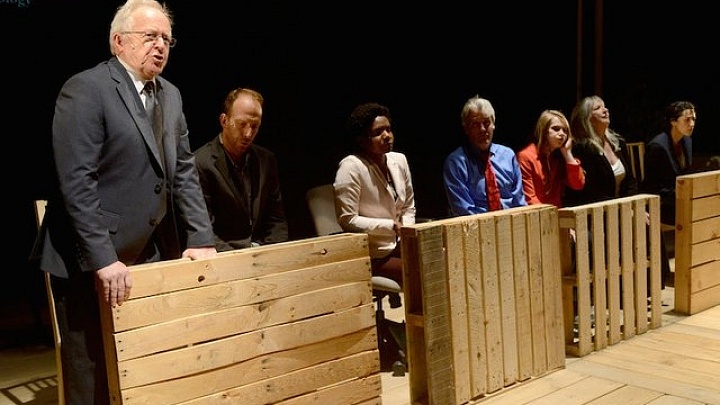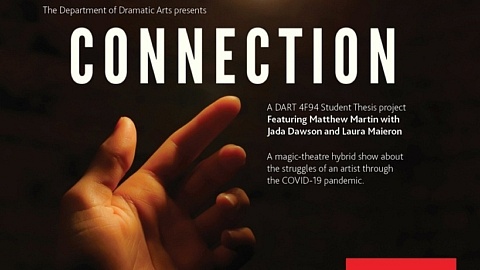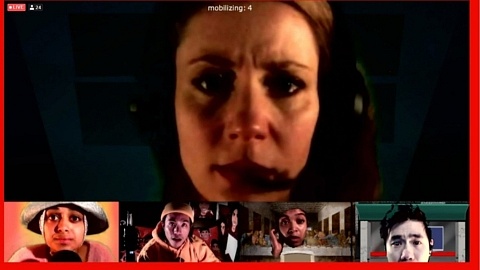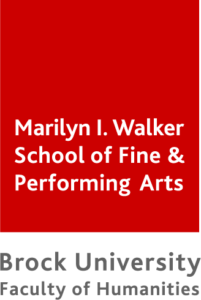“The magic of theatre” – a common descriptor of productions and a personal favourite explanation as to why I love the arts. Theatre has an ability to...
An Open Dialogue: Letters on “The Watershed”, Part Two
Nick and Hayley’s open dialogue about Annable Soutar’s newest play The Watershed continues. For those of you who are behind, you can read part one here. Here is Hayley’s response to Nick’s letter.
Hi Nick,
Thanks for your letter. I like what you have to say about The Watershed’s narrative structure and I agree: what makes the production work is the marriage of the traditional hero’s journey and the journalistic approach to verbatim theatre (using actual recorded dialogue as the script).
I’m not sure I totally agree with your concerns about accessibility. It’s true: government documents are over-complicated and use elevated legal gobbledegook, and government bodies can use this to get through loopholes (I’ll just leave a link to Harper’s new “child care benefit boost” here). I think The Watershed tackles this problem very well – the production seems to be aware of the fact that Canada’s population is to a large extent politically illiterate (as an indicator, just over 50% of Canadians voted in the 2011 Federal election). The names and affiliations of politicians, scientists, and civil servants depicted in The Watershed are projected on a wall behind them as a gentle reminder to audiences of a larger political framework. I guess what I’m saying is it’s not the fault of The Watershed that Canadian politics are “behind the veil”, and I believe the production goes to great lengths to peak behind that veil. I respect these efforts more than I would a study guide or condensed version of Canada’s political history, which would take away from the play’s narrative rather than enhance it as these projected names do.
Another thing I like about the production: it’s inflammatory without being accusatory. Soutar can’t be completely unbiased in her investigation – no one could be – but she makes a valiant attempt to display multiple perspectives. One of the major obstacles in Soutar’s investigation is her unsuccessful attempt to meet with a Conservative party member. She doesn’t use this as an excuse to not showcase a Conservative point of view, however. Soutar’s father, to my utter delight played by Eric Peterson, represents Conservative opinions in a series of heated conversations between him and Soutar. These conversations remind us that, just as the personal is political, the political is in turn also personal; Soutar and her father’s relationship is defined not only by familial love but by political tension.
Every aspect of the production is politicized, not to promote or defame any particular political movement, but to show how politics are unconsciously ingrained in our daily lives, to the point where even the preservation of clean drinking water becomes a political “idea” to be tossed around. The final words of the production – “This is what I’m seeing” – are not a call to action, but a call to information. Revisiting your question of accessibility, perhaps where you feel the production fell short is where we as an audience, or we as Canadians, have fallen short. Is it up to us to wade through the waters of politicking? I’m not sure, but how very strange it was that on that night – the night we saw Annabel Soutar’s family fly over the Alberta oil sands in The Watershed – the real Fort McMurray saw its worst oil spill since 1980. Perhaps “accessibility” is not the ability to wade through “ideas” such as clean water and environmental disaster, but rather the ability to say “this is what I’m seeing” to those who wish to work only in the field of ideas and not acknowledge practical consequences.
All the best,
Hayley
Related Posts
Rick Roberts’ Orestes, directed by Richard Rose, confronts the progressively blurring lines between real life and virtual life in a heightened version of the...
Every year the University of Windsor School of Dramatic Art produces multiple plays featuring its fourth-year students. This year, under the circumstances of...
Rick Roberts’ Orestes, directed by Richard Rose, confronts the progressively blurring lines between real life and virtual life in a heightened version of the...
Every year the University of Windsor School of Dramatic Art produces multiple plays featuring its fourth-year students. This year, under the circumstances of...
Leave a Reply (Cancel Reply)
Twitter Feed
Blogroll
DARTcritics.com is partially funded by the Marilyn I. Walker School of Fine and Performing Arts, in support of student learning; experiential education; student professionalization; public engagement with the teaching, learning and production activities of the Department of Dramatic Arts; new ways of thinking; and the nurturing of links with our communities.





